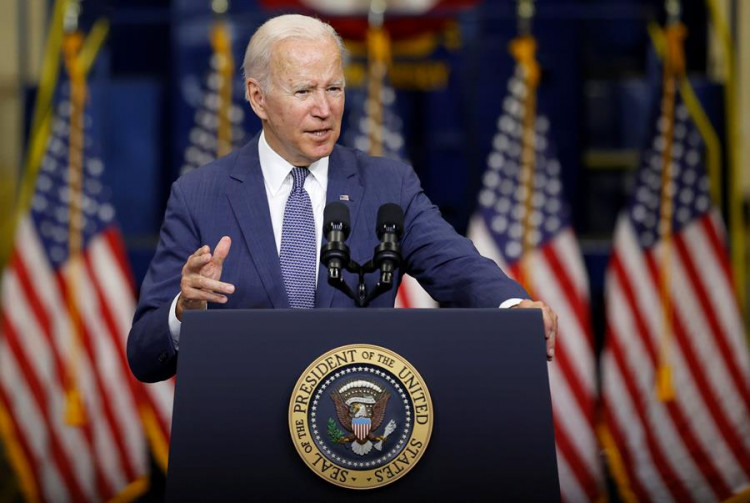In the wake of Taiwan's recent presidential election, U.S. President Joe Biden has unequivocally reaffirmed the United States' stance on Taiwan, emphasizing that while Washington does not support Taiwanese independence, it advocates for peaceful and uncoerced dialogue between Taipei and Beijing. This statement comes at a pivotal time as Taiwan elected a new president, Lai Ching-te, who has faced significant opposition from China due to his pro-independence stance.
Biden's message, delivered as he set off for Camp David, underscores the U.S. administration's commitment to Taiwan's new president. This commitment includes supporting dialogue and peaceful resolution of differences between Taiwan and China. Lai's election victory, marking a third successive term for the Democratic Progressive Party, was a bold assertion of Taiwan's democratic values, defying China's warnings that choosing him would heighten the risk of conflict.
Lai's victory speech resonated with calls for cooperation with China, emphasizing dignity and parity. His approach, however, is likely to be overshadowed by the looming uncertainty of Beijing's next steps. China's leadership, under Xi Jinping, has been increasingly assertive, and its relationship with Taiwan is a critical aspect of this dynamic.
U.S. Secretary of State Antony Blinken, along with other prominent figures like House Speaker Mike Johnson, has congratulated Lai on his victory, highlighting the strength of Taiwan's democratic system. The U.S. has also been vocal in warning against external interference in Taiwan's democratic processes, particularly from China. The U.S. commitment to Taiwan's security and democracy has been evident in recent years, with high-profile visits by U.S. officials, including former House Speaker Nancy Pelosi and Sen. Ed Markey, sending a clear message of support against Chinese aggression.
Despite the U.S.'s supportive stance, Biden's administration has worked to maintain a delicate balance in its relationship with China. The U.S. policy on Taiwan, as reiterated by Biden, aims to support the island's democracy without directly antagonizing China. This approach has been evident in various diplomatic engagements, including Biden's meeting with Chinese President Xi Jinping in November, where the two leaders sought to ease tensions.
During this meeting, Xi emphasized China's unwavering stance on Taiwan, asserting that "reunification" with the mainland is an "unstoppable" historical inevitability. Biden, in response, maintained that U.S. policy on Taiwan remains unchanged, emphasizing the need for peaceful resolution of differences.
The U.S.'s commitment to Taiwan is also reflected in its role as the island's most crucial international backer and arms supplier, despite the absence of formal diplomatic ties. The Biden administration's cautious approach seeks to maintain cross-strait peace and stability while upholding the democratic values that define Taiwan's society. Blinken's congratulatory message to Lai Ching-te underscores this commitment, affirming the U.S.'s readiness to work with Taiwan's new leadership to advance their longstanding unofficial relationship.
The recent electoral developments in Taiwan and the U.S.'s response signal a continuation of the delicate geopolitical balancing act in the Asia-Pacific region. While the U.S. does not support Taiwanese independence, it strongly advocates for the island's right to self-determination and a peaceful resolution of its differences with China. This stance, while maintaining strategic ambiguity, has been a cornerstone of U.S. foreign policy in the region, aiming to deter conflict while supporting democratic allies.
As Taiwan transitions to a new presidency under Lai Ching-te, the island faces an increasingly complex and challenging international landscape. The U.S., under Biden's leadership, remains a key player in this dynamic, walking a tightrope between supporting Taiwan's democratic aspirations and managing its intricate relationship with China. The coming months will be crucial in determining how these relationships evolve, with the U.S. playing a pivotal role in shaping the future of cross-strait relations and regional stability.






